Responsible tourism is making better places for people to live in and better places to visit. Based on common sense and responsible use of environmental resources and cultural assets of each destination.
It is interchangeably referred to as Ecotourism or Sustainable Tourism.
As a tourist, you have responsibilities of environmental, social and economical in the following ways
- Protect the environment, its flora, fauna and landscapes
- Respect local cultures, traditions, religions and built heritage
- Benefit local communities, both economically and socially
- To conserve natural resources from source to destination
- To minimise pollution – through the noise, waste disposal and congestion.
- Dispose of your trash at the nearest dustbin. Do not litter because your litter can kill marine life.
- Help to reduce plastic waste by reusing your empty water bottles.
- Learn about your destination, health and safety
- Purchase local goods and services
- Respect Human rights
- Travel in a way that minimises negative impact on the environment
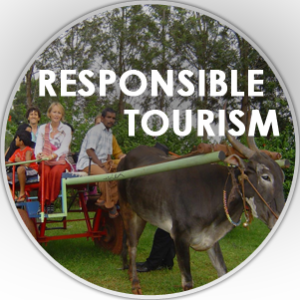
Around the world, initiatives are being taken for Responsible Tourism. Following are a few
Costa Rica, a pioneer in Green Challenge is on its way to becoming the first carbon neutral country by 2021. ‘Pura Vida’ is the motto of Costa Rica which means ‘pure life. It reminds us of its beauty.
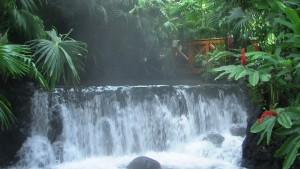
(pixabay.com)
“Rural community tourism consists of planned touristic experiences which are integrated sustainably with the rural environment and developed by local citizen organizations for the benefit of the community.” – Costa Rican Tourism Board, UNDP and the Alliance for Rural Community Tourism, 2005.
Few Destinations in Costa Rica – Samasati Nature Retreat; Visiting Costa Rica – Rios Tropicales; Ticos – ACTUAR CONSERVacations; Sustainable Travel Experiences –Arenas del Mar Beach and Nature Resort
Deer Park’s campus Waste Management System– Deer Park Institute located in Bir, Himachal Pradesh, India, believes that to have a positive change in the community, it needs to begin with its own internal approach and practices. For environmentally sustainable living, following steps have been undertaken:
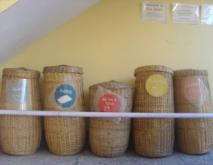
- Segregating all waste in the campus eco-zones. Recyclables are given to local scrap dealers.
- Organic matter is fed to local cows.
- Deer Park’s healthy vegetarian meals are cooked primarily with foods grown in their garden or bought from local farmers.
- Using solar hot water systems to conserve electricity.
- The Institute raises awareness of local and global environmental issues among students and visitors through displays and information sheets posted around the campus, film screenings and workshops.
- The institute has also created an eco-friendly livelihood. Under this initiative, a group of local villagers have learned to make handicrafts from recycled materials, including greetings cards made from scrap paper, and bags, wallets and other products made from cloth scraps. These products are now being successfully sold in Deer Park’s gift shop, with the profits going to the local team members. Besides the initial training, Deer Park has provided the handicraft team with a permanent workshop on their campus and support in developing new products. Two of the young women from the handicraft team are also being trained on their campus in IT, office work and other vocational skills.
Apani Dhani, Rajasthan, India– offers eco-friendly accommodation, excursions and activities with locals such as cooking lessons, initiation to traditional arts and crafts. It is also a winner of Responsible Tourism Award in the year 2013. Besides an environmental concern and a local development policy, Apani Dhani supports projects dedicated to three themes: education, environment and architectural heritage protection.

Battlesteads Hotels, UK– Net zero carbon neutral three-star Hotel. From the big stuff, like the carbon-neutral heating and hot water system, the extensive gardens with two polytunnels which provide fresh fruit and vegetables for the kitchen throughout the year, to the small stuff, like locally sourced organic toiletries, the use of empty toilet roll inners for potting seedlings and the wormeries munching through kilos of food waste turning it into compost. (Source)
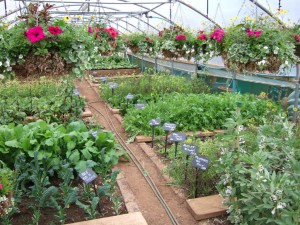
(Image courtesy visitnorththumberland.com)
ITC Sonar, Kolkata, India– 5-star hotel leading light in renewable energy and resource efficiency. Situated close to the airport and just ten minutes from the Salt Lake silicon hub of Kolkata and the city’s shopping, entertainment, cultural and business districts, ITC Sonar offers an elegant oasis of luxury and warmth in an ambience that brings you closer to nature. The first hotel in the world to be registered by United Nations Framework Convention on Climate Change (UNFCCC) for Carbon Emission Reductions, ITC Sonar delivers graciously on ITC Hotels’ promise of Responsible Luxury.
Heritage Kandalama, Sri Lanka– An architectural masterpiece by Geoffrey Bawa. Recognised as excellence in waste, water and energy management and sustainable architectural design. It has won the Best hotel Wild Asia Responsible Tourism Award in the year 2010.
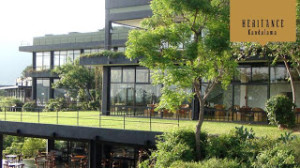
To conclude, as a responsible tourist you need to remember this, TRUST Principle model which is easy to adapt –
T– Travel to eco-friendly destinations largely.
R– Recreation with responsibility
U– Use only reusable items
S– Support the effort through possible means
T– Try and reach Responsible Tourism
So, let us all join hands and pledge to become a responsible tourist.
*/I am blogging for #ResponsibleTourism activity by Outlook Traveller in association with BlogAdda/*
******
You may like to read a related article- Responsible tourist this season
******
References:
Deer Park Institute, Bir, Himachal Pradesh
Featured Destinations in Costa Rica – Samasati Nature Retreat; Visiting Costa Rica – Rios Tropicales; Ticos – ACTUAR CONSERVacations; Sustainable Travel Experiences –Arenas del Mar Beach and Nature Resort
